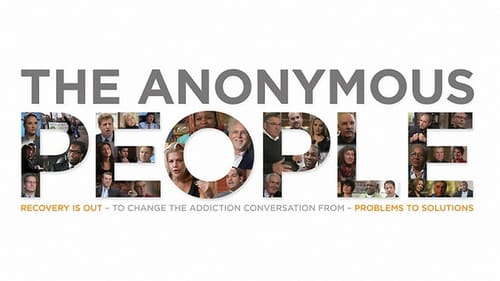WasAnnon
Slow pace in the most part of the movie.
Rijndri
Load of rubbish!!
Kien Navarro
Exactly the movie you think it is, but not the movie you want it to be.
Darin
One of the film's great tricks is that, for a time, you think it will go down a rabbit hole of unrealistic glorification.
michellerook35
This film is great. I mean it shows the real deal behind every addict. The fact that we are good people, suffering with a disease, not choosing to be addicted. I love that it focuses on the recovery piece instead of the disease piece! I would love to see more people come forward about their issues like these brave souls. Tell the world, show the world, how wonderful we can be and are in recovery. Almost everyone knows someone close to them that is affected by the disease of addiction and should have the opportunity to view this. My hope is that this will become a huge part of stigma reduction if we can just get people to take the time to watch it. This film focuses on all forms of recovery so there is no discrimination towards any one chosen path. This is going to be a crucial piece in the current recovery movement. I am proud to say I am I'm in recovery and so grateful that I had the opportunity to witness this masterpiece.
scopsey01
I went to see this movie with a dozen or so folks in recovery. Maybe that was the difference for us. We understood what was being said. Can you imagine a time when it is a matter of pride to say "I am in recovery?" Not I am an alcoholic, addict...but in recovery. Which is kept secret. Yes you can share your status with friends and fellow addicts in meetings. Yes, you can tell anyone you choose, but face facts, there is shame in being an addict and sadly that shame follows into the hardest won achievement of our lives: recovery. The movie celebrates recovery and encourages us to leave the shame behind with the active addiction and instead celebrate our changes and accomplishment of recovering from near death at the hands of alcohol or other drugs.
dar_dunaway
Greg Williams brings to light the hidden world of addicts, and sheds light on why it does not, and should not be that way. Far from attacking 12 step programs, the film raises the question of what anonymity means and how useful it is to helping addicts still suffering. (Bill W, a founder of AA, was an ardent and outspoken advocate on addiction issues, and readily put himself out there to help others). The film praises the 12 step movement as a powerful force for change for the addict. It also asks the question why should an addict be ashamed of their disease? Why would someone with cancer or AIDS feel shame? same for addiction. The film shows a new way to help addiction, by using a unified voice to create change in healthcare, government, attitudes and stigmas that cause so many to be anonymous, rather than heard to create better care for these sick individuals and their families.
sophiepride3
This documentary stresses the need for advocacy for the disease of addiction. If addiction has been established as a "chronic brain disease", the various recovery groups need to band together to have a collective voice and political power so that addicts can have treatment, not jail sentences. Also, more funding for research, treatment, and follow-up care is crucial.The film refers to the public advocacy efforts of the gay community which greatly reduced the stigma of HIV/AIDS,and led to expanded funding for research and treatment options.Our anonymous traditions keep us from having a unified front. For example, I couldn't pass out flyers for the film at my 12 Step meeting because it is not an official event of that fellowship. A local 12-Step clubhouse does not allow meeting lists for "the other fellowship" on premises, as that would break a tradition. But a sign on the wall refers people to the other fellowship. Few people have heard of other recovery support groups such as Women For Sobriety. If we weren't so anonymous, we could change the stigma still attached to addiction, and especially to relapse. Our collective voice,and our vote, would be at least 23.5 million strong.Bill Wilson himself spoke before a Senate committee in 1969. In 1976, celebrities in recovery, including actor Dick Van Dyke and astronaut Buzz Aldrin, publicly supported recognition of addiction as a disease (Operation Understanding). This progress was sadly lost in the "War on Drugs" of the 1980s, when incarceration of drug addicts spiked enormously. To this day, prisons are primarily populated with addicts. The Anonymous People covers these points with excellent historic footage.The film does not bash 12 Step groups. Actress Kristen Johnston is one person who says "I'm not going to hide in a church basement" (paraphrased). I heard one other "church basement" comment. Don't let those comments detract you from the point of the film. See it for yourself. It's about unity, advocacy, gaining a political voice and a public face to tell the world "We do recover". We will not be shamed by people who do not understand that addiction is a chronic brain disease. Diseases deserves empathy and medical care, not disgust and prison sentences.

